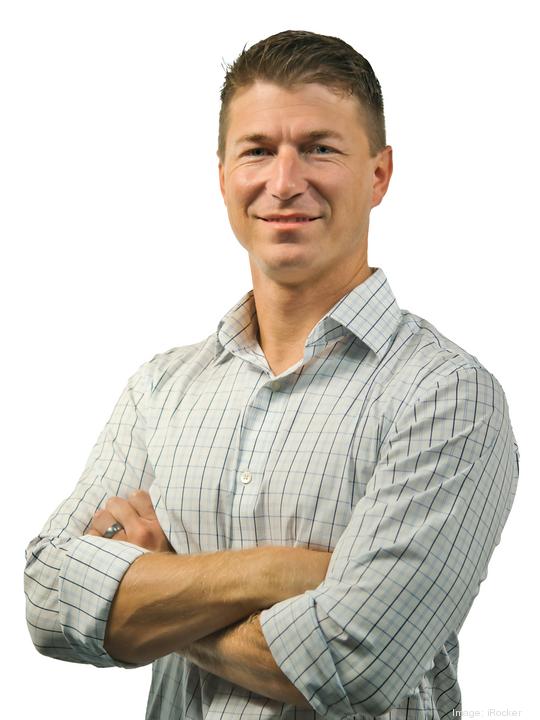
Steve Elder founded iRocker with a $20,000 investment and a job he wasn’t yet ready to quit. Today, he estimates the water sports and lifestyle brand company, which specializes in inflatable stand-up paddle boards, is worth between $70 million and $100 million.
Elder, who was named Florida’s Entrepreneur of the Year by EW in 2021, describes his formula for entrepreneurial success like a true outdoor sports maven: “Listening to the customer and just all-out tenacity, man.”
Before he had any iRocker customers to learn from, Elder was working in international sales at UPS, helping customers grow their businesses overseas. It was then that he became familiar with e-commerce.
At some point, he knew he wanted to start his own business. So, when he stumbled across an inflatable stand-up paddle board board — a concept that, as somebody who grew up playing lots of water sports, made no sense to him — that entrepreneurial drive resurfaced.
“I thought it was gonna be a joke,” he said, recalling his experience first seeing the boards, known as SUPs, in a store. “I thought it was gonna be like a pool toy that you’d stand on it and it’d bend in half.”
Yet he decided to check it out, looking online for the brand he’d seen and ultimately investing his money overseas via Alibaba — a Chinese ec-ommerce giant — to a Chinese company that made the inflatable SUP boards, which he and his future co-founder Dave Erwin started reselling. While doing this, he said, he learned a lot about what customers thought about the product.
It turned out they weren’t completely satisfied.
“The customer had a lot more demand for a better product,” he said.
After two years of reselling lower-quality inflatable SUP boards, Elder and Erwin started designing and selling their own premium iRocker-brand boards. They were profitable almost immediately, Elder said, with about 70% of their sales through Amazon, and the rest coming from a website Elder built. Though he credits Amazon with enabling iRocker’s initial viability, he said he knew establishing his brand required him to improve the company’s own website.
The reason, he said, had to do with the importance of enhancing the customer experience — responding to customer feedback, improving shipping speeds and making the online browsing experience as easy and enjoyable as possible.
The revenue Jacksonville-based iRocker generated over the first year was immediately put back into the business, Elder said. Fortunately, he had saved up enough money from UPS to be able to afford not to pay himself during this time.
With a focus on growth, Elder quickly expanded iRocker into Canada, Germany, Australia and the UK. He also started selling complementary accessories: a pump for the inflatable SUP board, spare parts and other gear. When customers demanded a more premium board with better fishing capabilities, iRocker released higher-quality Blackfin paddle boards, which start at $960, in March 2018.
When customers demanded a cheaper, entry-level board, iRocker came out with Nautical — with prices starting at $467 — in March 2020.
Without having built out their e-commerce infrastructure, Elder said, Covid-19 would have killed iRocker. In general, he contends the power of ecommerce has been underestimated within the business world, adding that geographically constrained or undiversified retailers are more vulnerable than they might seem.
One of the paradoxes of growing a business, Elder said, is that it requires a kind of vigilance that becomes increasingly impossible to maintain.
“Everything you set up — any process, any procedure, any system … all of it always needs attention,” he said. “The moment you take your eye off the ball, you likely are going to wind up with some sort of a problem. The crazy thing about fast-paced growth is you can’t keep your eye on all the balls.
That’s why the recent growth of iRocker includes personnel. Twenty-four months ago, Elder said, seven people worked for the company. At the end of 2020, that number was 28. By the end of 2021, it was 62.
It’s the kind of growth that makes Elder nervous, since he believes maintaining the culture of a business is fundamental to its success.
“We are very careful about who we hire, because they could be a rock star and have a skill set and a set of experiences that is out of this world — but if they don’t fit culturally, it’s going to be a flop,” he said.



